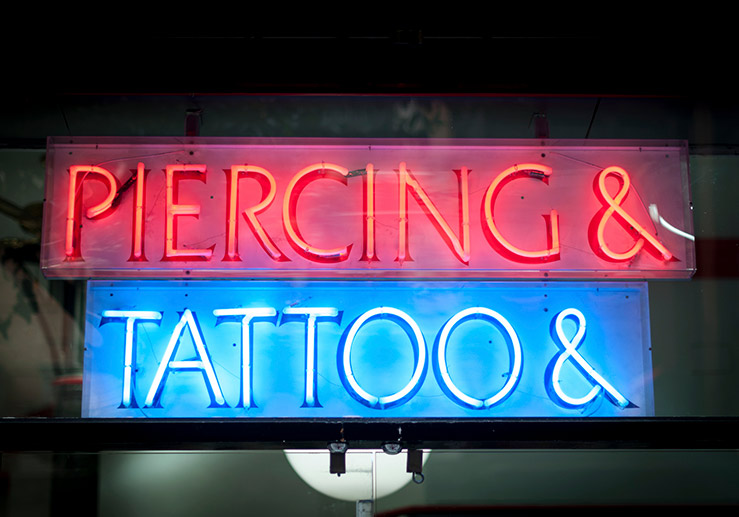Tattoo Insurance Explained – Body Piercing Insurance Explained
Body Piercing Insurance Explained
By: Allen Financial Insurance Group
Tattoo Insurance Explained
The tattoo and body piercing business has been around for centuries but only in the past decade has liability insurance become a major issue. As with any industry dealing with the general public almost all studios are subject to some type of licensing or oversight by state and local regulatory departments. Currently, there are no federal laws governing tattoo or body piercing studios. Laws and regulations dealing with tattoo and body piercing businesses vary widely from state to state. Most regulations only deal with basic requirements for business licensing and health safety codes such as equipment sterilization, use of materials and medical waste disposal . Other regulation is often tangential, derived from statues limiting specific medical procedures to licensed physicians, technicians or practitioners. These may include services involving injections, lasers, facial tattoos, micro-derm abrasion or other invasive procedures. Probably the most common statutes specific to studios involves the tattooing or piercing of minors. In recent years a number of states have enacted industry specific statutes, defining and regulating studios, including minimum insurance requirements. Washington and Oregon have recently established comprehensive regulatory standards that will probably become the model emulated by more states in the future.

Tattoo Insurance Explained – Body Piercing Insurance Explained
As with any small business operating in the United States all studio owners are subject to common law and will be held liable for any acts of negligence. A standard business liability policy typically includes coverage for premises operations, products liability and completed operations. Professional liability coverage is normally excluded and purchased separately. In the absence of uniform state regulation, and considering the scope of activities taking place in tattoo and body piercing studios, most insurance companies will not offer liability coverage. There is actually only a fine distinction between products / completed operations liability and professional liability coverage. At present there are only a few specialty insurance providers with the necessary underwriting expertise offering tattoo and body piercing insurance coverage.
Not all insurance policies are created equal. There is a saying that states “the Devil is in the details”. Two policies may appear to be the same but one could contain coverage limitations and exclusions leaving the policyholder exposed. For example, if the liability section does not include products and professional liability coverage a studio owner could end up defending himself in the event of a claim or lawsuit. If a policy is written on a “claims made” basis the policyholder could find himself without any coverage at all after the policy expires. Other factors to consider include coverage for guest artists, independent contractors, apprentices and off-site shows.
Another essential part of an effective risk management plan are good client consent and liability release forms. Written safety procedures and liability releases are fundamental to the operation of every tattoo and body piercing studio. Some forms, such as a Minor Consent Form, are required by state statute. The adoption and use of these forms is always a requirement for professional liability insurance coverage. Even if a release does not result in the dismissal of a lawsuit it can still function as a powerful defense in litigation.
A studio owner needs to consider all aspects of potential loss when buying insurance. Getting the right type of property coverage is also an essential part of any business policy. The correct combination of property coverage including business interruption can guarantee the very survival of your business.
Workmen’s Compensation coverage, which is required by law, can often be overlooked by a new business venture. There are twenty criteria used by the Internal Revenue Service to determine whether an individual should be treated as an independent contractor or an employee. In the event of a work related injury to an employee the business owner can still be held responsible for the expenses.
Whether you’re looking for a single insurance policy or an entire program review, the insurance representative you choose is one of the most important decisions you will make.
About the Author
Brent Allen is CEO of Allen Financial Insurance Group. Established in 1971, Allen Financial is a national provider of commercial specialty insurance programs. Mr. Allen is considered to be one of the leading experts in tattoo and body piercing insurance and risk management. AFIG Insurance products are distributed through a national network of over 2,500 insurance professionals.


